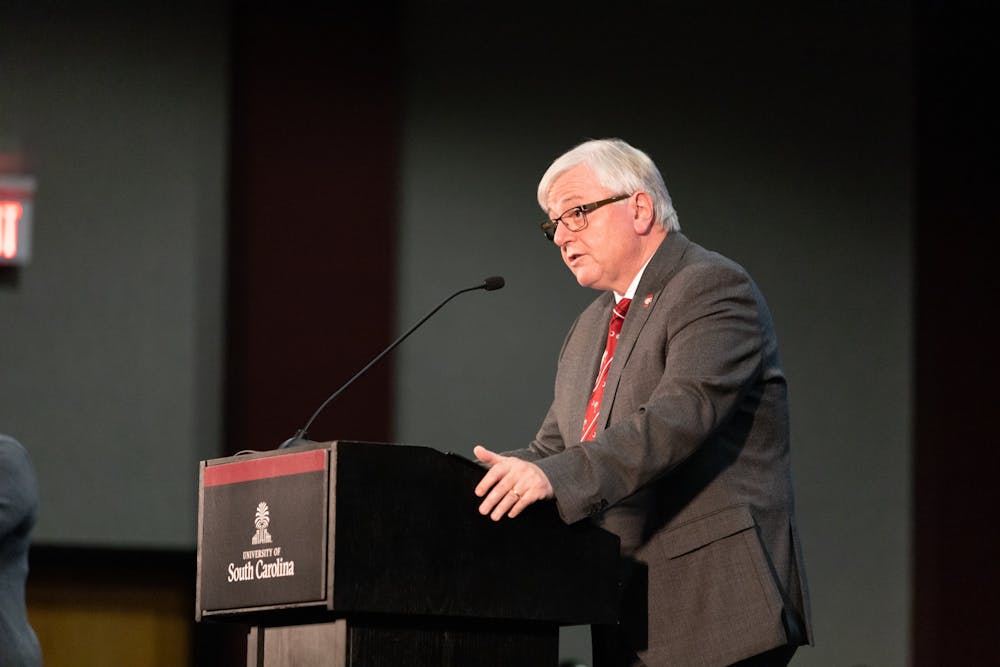Leaders at the University of South Carolina are planning to slow the growth rate of the student body after a record-breaking freshman class in 2023 despite expectations for an even larger one next year.
The roughly 7,300 new freshmen on campus make up the biggest class in school history. Remarks from President Michael Amiridis at the State of the University Address last Tuesday indicated a desire to slow that growth trajectory and not increase class sizes by such a large amount.
“We don’t anticipate, and we don’t want this level of growth next year,” Amiridis said. “Our goal for next year is roughly the same numbers we got this year."
Next year’s class is expected to exceed current numbers, but the percentage increase will be less than this year, according to university spokesperson Jeff Stensland.
However, Stensland said there will not be an attempt to admit fewer students despite the consistently high levels of admission.
“We’ve experienced high demand in recent years, and that will likely continue, but we don’t think we’ll necessarily need to admit fewer students to experience more modest growth compared to last year," Stensland said.
The university does not release the methods used for anticipating enrollment, but a number of different tools are used to gauge the size of each class, according to Stensland. The "yield," which is the amount of students that are accepted and choose to come to USC, is an example of something that is closely tracked.
USC’s new policy of admitting the top 10% of South Carolina high school seniors is also not expected to dramatically affect class sizes, Amiridis said.
“We will not see huge growth with the 10%. We will see a few hundred students,” Amiridis said. “Already we get a lot of students who are in the top 10%.”
Amiridis said the current infrastructure cannot handle continual record-breaking admittance, but the university still strives to provide quality services to students.
“In all of these situations, we invested in the student services to make sure the student services do not go into a lower quality," Amiridis said.
This investment includes a focus on the degree to career transition to better support students after graduation as well as more attention on the overall student experience.
"What I hope they will see is improvement in the services and more attention to their experience and also what happens after graduation," Amiridis said.
Amiridis said the university also focused on improving topics such as mental health services and advising, which were mentioned during Imagine Carolina, a campus event hosted by the university to receive student feedback.
“We’re always trying to become better and better," Amiridis said. “I think what they will see during the next year is now implementation of some of the things that we've talked about."

